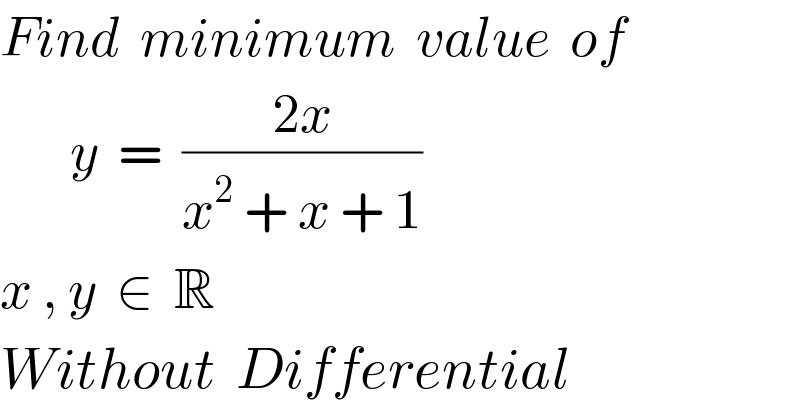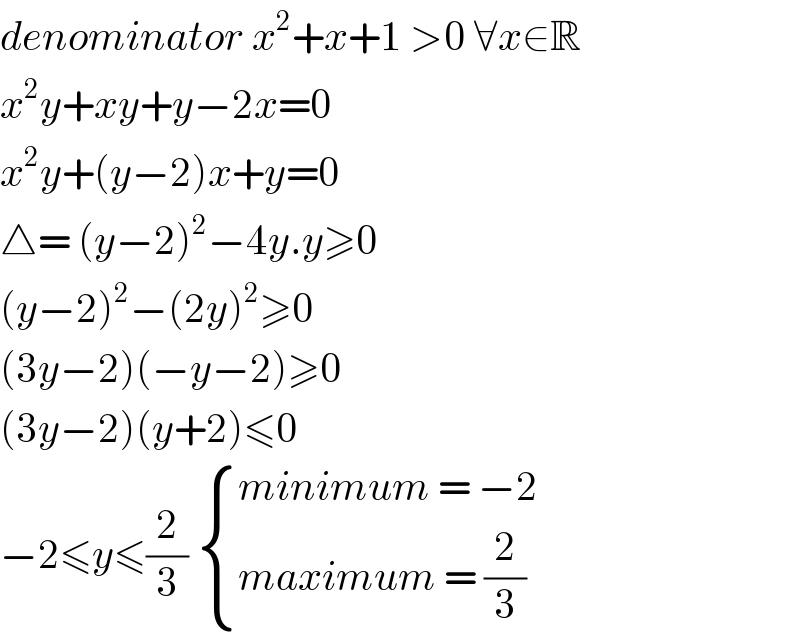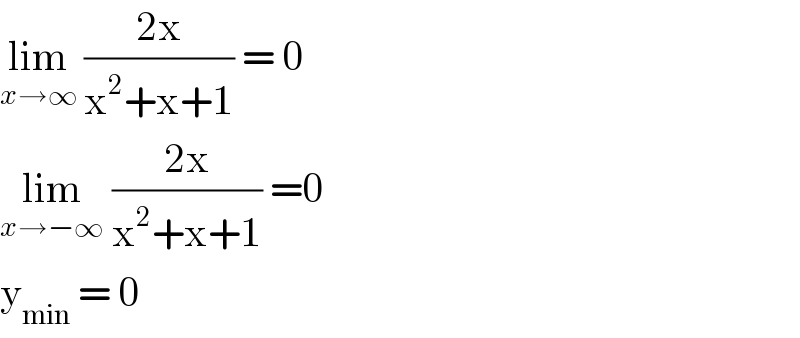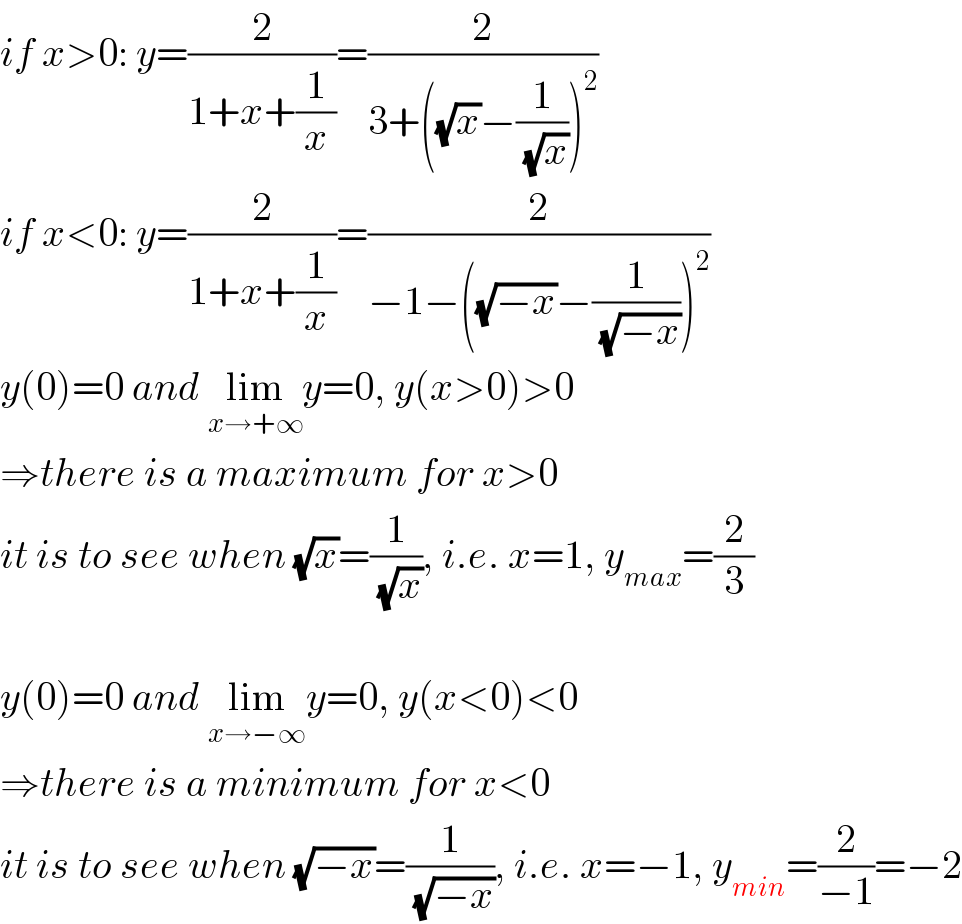
Question and Answers Forum
Question Number 78628 by naka3546 last updated on 19/Jan/20

Commented by john santu last updated on 19/Jan/20

Answered by jagoll last updated on 19/Jan/20

Commented by mr W last updated on 19/Jan/20

Commented by jagoll last updated on 19/Jan/20

Commented by jagoll last updated on 19/Jan/20

Commented by mr W last updated on 19/Jan/20

Commented by john santu last updated on 19/Jan/20

Commented by mr W last updated on 19/Jan/20

Answered by behi83417@gmail.com last updated on 19/Jan/20

